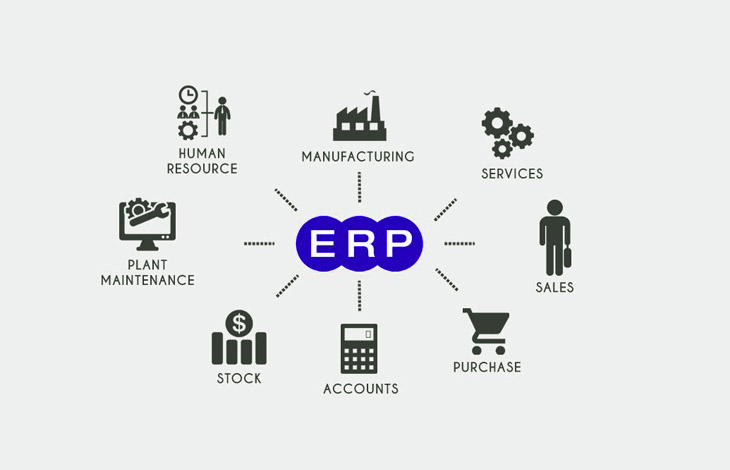In the dynamic landscape of modern business, ERP data management stands as a cornerstone for success. Efficiently harnessing the power of Enterprise Resource Planning (ERP) systems can significantly enhance organizational operations, streamline processes, and drive growth. In this comprehensive guide, we delve deep into the realm of ERP data management, uncovering its significance, strategies for optimization, and best practices.
Understanding ERP Data Management
ERP data management encompasses the systematic organization, storage, retrieval, and utilization of data within an ERP system. At its core, ERP serves as a centralized hub for various business functions, including finance, human resources, supply chain management, and more. Effectively managing data within this framework ensures coherence, accuracy, and accessibility across departments, facilitating informed decision-making and fostering agility.
Significance of Efficient ERP Data Management
Robust ERP data management holds immense importance in today’s competitive business landscape. By maintaining clean, up-to-date data, organizations can mitigate risks, improve operational efficiency, and enhance overall productivity. Moreover, accurate data serves as a foundation for strategic planning, enabling businesses to capitalize on emerging opportunities and adapt to market dynamics swiftly.
Strategies for Optimizing ERP Data Management
Achieving optimal ERP data management requires a multifaceted approach encompassing various strategies and techniques. Let’s explore some key tactics to streamline data processes and maximize efficiency:
1. Data Governance Framework
Implementing a robust data governance framework is paramount for maintaining data integrity and compliance. Define clear policies, roles, and responsibilities regarding data ownership, access controls, and privacy measures. Regular audits and monitoring mechanisms should be established to ensure adherence to established guidelines.
2. Data Cleansing and Standardization
Regular data cleansing initiatives are essential to eliminate inconsistencies, duplicates, and inaccuracies within the ERP system. Utilize automated tools and algorithms to cleanse and standardize data formats, ensuring uniformity and reliability across the platform. By cleansing data proactively, organizations can minimize errors and optimize resource utilization.
3. Integration with Third-party Systems
Seamless integration with third-party systems and applications enhances the functionality and utility of ERP data. Explore integration options for CRM systems, e-commerce platforms, and analytics tools to facilitate data exchange and interoperability. A unified data ecosystem enables real-time insights and enables agile decision-making.
4. Performance Tuning and Optimization
Regular performance tuning and optimization are essential to ensure ERP systems operate at peak efficiency. Conduct comprehensive performance assessments, identify bottlenecks, and implement optimization strategies such as database indexing, query optimization, and caching mechanisms. Proactive monitoring and tuning efforts can significantly enhance system responsiveness and user experience.
5. Continuous Training and Education
Invest in continuous training and education programs to empower employees with the necessary skills and knowledge to leverage ERP data effectively. Provide comprehensive training sessions on data management best practices, system functionalities, and emerging technologies. A well-trained workforce enhances data literacy and promotes a culture of data-driven decision-making.
Best Practices for Effective ERP Data Management
In addition to strategic optimization strategies, adopting best practices is essential for maintaining the integrity and reliability of ERP data. Let’s explore some key best practices:
1. Regular Data Backups and Disaster Recovery Planning
Implement robust data backup mechanisms and disaster recovery plans to safeguard critical business data against unforeseen events such as hardware failures, cyberattacks, or natural disasters. Regularly scheduled backups and automated recovery procedures ensure data availability and business continuity in the event of a crisis.
2. Data Security and Access Controls
Prioritize data security by implementing robust access controls, encryption mechanisms, and authentication protocols within the ERP system. Restrict access to sensitive data based on role-based permissions, and regularly audit user activity to detect unauthorized access or suspicious behavior. Data encryption techniques should be employed to protect data integrity and confidentiality.
3. Performance Monitoring and Optimization
Establish proactive monitoring mechanisms to track system performance metrics, identify potential bottlenecks, and optimize resource utilization. Utilize monitoring tools to track key performance indicators (KPIs), analyze system behavior, and fine-tune configurations for optimal performance. Continuous optimization efforts ensure ERP systems operate efficiently and meet performance objectives.
4. Compliance and Regulatory Adherence
Ensure compliance with relevant industry regulations and data protection laws governing the collection, storage, and processing of business data. Stay abreast of regulatory updates and implement necessary measures to maintain compliance with standards such as GDPR, HIPAA, or SOX. Regular audits and assessments should be conducted to validate adherence to regulatory requirements.
Final Wording
Effective ERP data management is indispensable for modern businesses seeking to thrive in a competitive marketplace. By implementing robust governance frameworks, optimization strategies, and best practices, organizations can harness the full potential of ERP systems to drive growth, innovation, and operational excellence.



